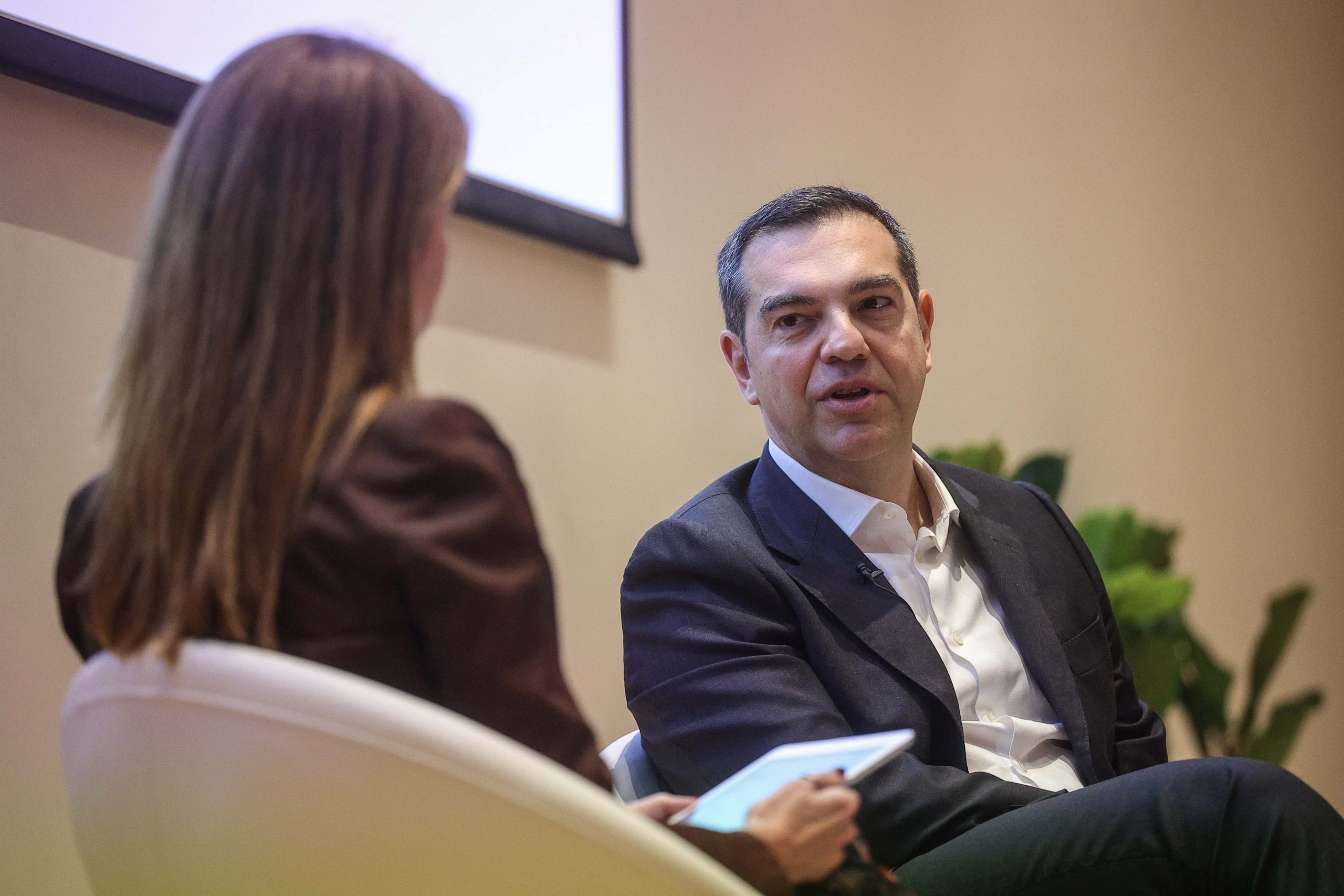Former Greek prime minister Alexis Tsipras, in his first interview since resigning last summer from the helm of a SYRIZA party he led to twin election victories in 2015, stressed that he never negotiated the country’s presence in Europe before or with a controversial referendum engineered by his government in July of that year.
A resounding “no” was the result of the contentious referendum, as Greek voters were asked to approve or disapprove of what was billed – by the Tsipras coalition government – as European creditors’ “last offer” at the time. However, the “no” was subsequently turned into a “yes” by Tsipras and his coalition government, with the third consecutive bailout memorandum passed by a wide Parliament majority in August but without a sizable anti-bailout militant faction that quit SYRIZA. A second election in September returned Tsipras, radical left SYRIZA and its right-wing and unabashedly populist junior coalition partner, the Independent Greeks (ANEL) party, to power until July 2019.
“Not for a moment did it cross my mind to negotiate the country’s presence in the European Union and the euro zone. It was a dramatic moment but it was a moment that marked the end of a lengthy period of futile austerity and Europe’s inability to provide a solution, as they (Commission, some Eurozone member-states, the IMF and ECB) didn’t trust the Greek system. When SYRIZA took over, it inherited empty coffers. The mandate we had was to negotiate a viable prospect for exiting the (bailout) memorandums with society left standing,” he said, adding: “… we tried to fulfill this mandate. Greece had no chance of repaying its debts without a new loan (package). The other option was bankruptcy and exit, and for me this was not an option,” he replied to a reporter’s question.
Tsipras spoke at a conference in Athens this week commemorating the 50th anniversary of the restoration of democracy in Greece, organized by National Bank’s Cultural Foundation, the Hellenic Observatory of the London School of Economics (LSE), the Delphi Economic Forum and the Athens daily “Kathimerini”.
“The referendum at the end of the day dramatized this debate (with creditors)…to such an extent that both sides took a step back. We were given the chance to adopt reforms that would have a cost, while the EU would agree to a loan agreement with a prospect of an exit (from the bailouts). The way out was a restructuring of the debt, otherwise the country couldn’t foray into the markets. The previous discussion was hypocritical, they forced the IMF to enter the program by changing its statutes, which required restructuring…There were people and forces that talked about the need for the country to leave the euro. In the end, what we achieved was to have a difficult program with a beginning, middle and end; a program that prioritized structural reforms, and this was the reason, of course, and the courage we showed, the political cost we took – but this was also the reason that within three years we managed to have the country make a clean break from the memorandums,” he added.
In continuing a rare instance of self-criticism of his government tenure, Tsipras said the handling of both the so-called “Novartis scandal” and the procedure to auction-off only four nationwide television licenses in the country was “ineffective”.



